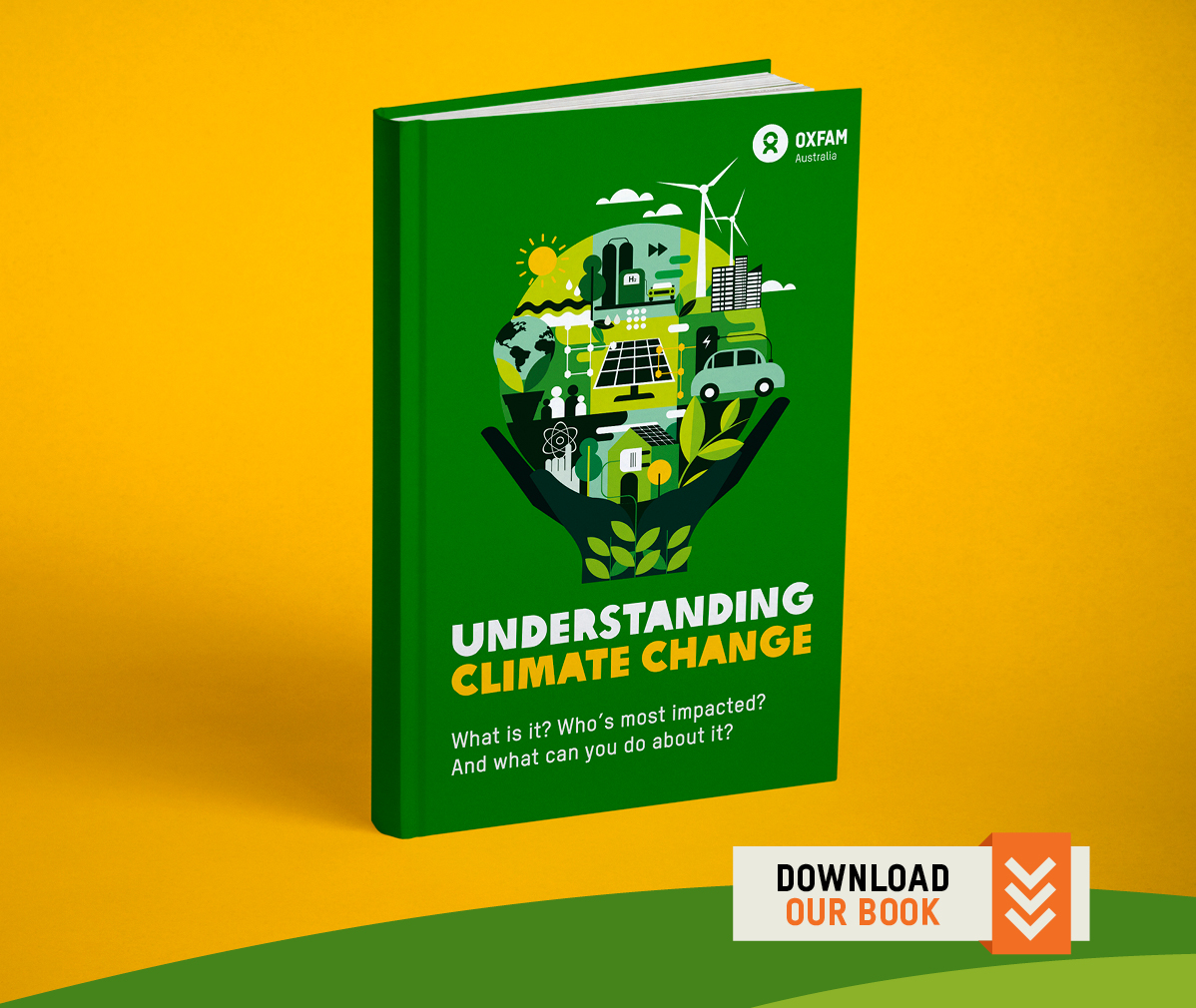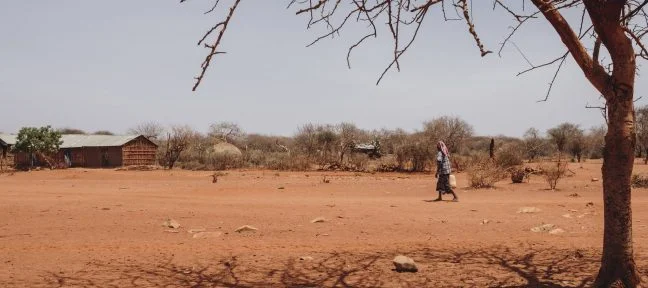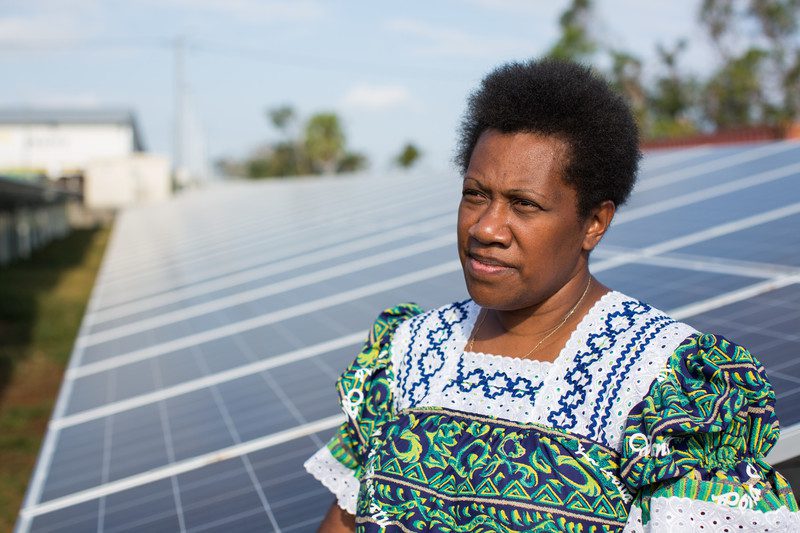Climate change causes and impacts
What is climate change?
Climate change refers to any change in our climate over a period of time. When we talk about climate change, it is usually about the human-induced change in the climate that is threatening our future on this planet.
How are humans changing the climate?
Our planet has a natural greenhouse effect, which helps to sustain life. Since the industrial revolution, developed countries have been releasing enormous amounts of greenhouse gases into the atmosphere. The increased amounts of greenhouse gas emissions are overwhelming our atmosphere, trapping the sun’s rays and heating the Earth at a rapid rate. It is sometimes referred to as the “greenhouse effect” and it is changing our natural climate at a much faster rate than we have ever seen.
The most important greenhouse gases that are driving climate change are carbon dioxide and methane. Carbon dioxide is released from mining and burning fossil fuels, like oil and coal. Trees trap carbon, so deforestation — the large-scale clearing of forests — is also increasing the amount of carbon in the atmosphere. Methane emissions are released from agriculture, fossil fuels and decomposing landfill waste.
Effects of climate change on weather and the environment
Climate change is often associated with a warming environment, but it’s not just average temperatures that are rising. The increase in global temperatures is causing ice sheets and glaciers to melt, which is making sea levels rise and reducing the amount of land available for humans and animals to inhabit. With more heat and energy in the atmosphere and oceans, our weather is also becoming more extreme and unpredictable. This means that extreme heat, fires, floods, cyclones, and storms are increasing in number and intensity.
The United Nation’s Intergovernmental Panel on Climate Change (IPCC) is made up of the world’s leading climate scientists. The IPCC’s sixth assessment report states that humans have unequivocally caused climate change. Global surface temperatures have risen 1.1°C since pre-industrial times due to the increased greenhouse gas emissions produced by humans. Human-caused global warming is now affecting extreme weather in every part of the world.
Climate change as a threat to vulnerable communities
The global climate crisis will affect all of us, but not equally. One of the greatest injustices of climate change is that it hurts those who are least responsible for causing it, and who are least equipped to protect themselves from it.
Climate change is already hurting billions of people around the world, but it is an even bigger threat to people living in poverty or with a disability, indigenous communities, women and girls.
Indigenous communities are at risk of losing thousands of years of connection to their land, as seal level rise and extreme weather causes mass displacements. Gender inequality and discrimination means that women, girls and people living with a disability are less likely to have access to the knowledge, tools and finance to help them overcome climate challenges. And for those living in poverty, climate change threatens the massive gains that have been made to reduce global poverty in recent decades.

Understanding Climate Change eBook
It’s no secret that we are currently living in an era of rapid climate change. Everywhere you turn, there is evidence of the increasing effects and destruction caused by the changing environment. Get the facts about climate change – what it is, its effects on communities around the world, and how we can solve this global crisis.
The importance of achieving the Paris Agreement
In 1994, the United Nations Framework Convention on Climate Change (UNFCCC) came into force with 196 countries — also known as parties — signing the treaty; nearly every country in the world. Every year since, the signatory parties have met at Conference of the Parties (COP) meetings to negotiate a global response to climate change.
In 2015, the COP21 meeting in Paris led to the Paris Agreement — a legally binding international treaty on climate change. The goal of the Paris Agreement is to “pursue efforts to limit the temperature increase to 1.5°C above pre-industrial levels” (UNFCCC).
If we can keep global warming below 1.5°C, we have a chance to avoid the worst impacts of climate change. But to do so, global greenhouse gas emissions must peak before 2025 and decline 43% by 2030.
We are in a critical stage of addressing the climate crisis, but global emissions are not declining rapidly enough. People living in poverty will continue to see their basic human rights undermined as they lose their lands, property, livelihoods, health, wellbeing, and even their lives to the devastating impacts of climate change.
We must act now to ensure the global temperature rise stays below 1.5°C, so that people around the world can adapt and survive.

Advocating for government action
The climate crisis demands urgent action from everyone, particularly our political leaders. Wealthy countries have contributed more to climate change than low-income countries, and they have a responsibility to help low-income countries reduce their emissions and adapt to a changing climate. Yet wealthy countries are falling short of their goal to raise $100 billion per year in climate finance to help low-income countries adapt.
As one of the world’s wealthiest countries and highest greenhouse gas emitters, Australia has a responsibility to people who are the most vulnerable to the impacts of climate change, and an opportunity to be a world leader in investing in clean, green, sustainable industries.
Here in Australia, we are calling on our government to commit to a 75% reduction in greenhouse gas emissions by 2030 and stop all new coal, oil and gas projects. Australia must also invest in renewables and significantly increase climate adaptation funding to promote the development of green industries.
To assist those who are most vulnerable to a changing climate, and who are often left out of decisions that impact them, we are calling on Australia to provide loss and damage compensation for the most affected communities in Australia and the Pacific; include First Peoples in climate change mitigation and adaptation strategies; and support the wellbeing of communities dealing with the impacts of climate change.
A safe, clean energy future should be equally attainable for all, not a privilege reserved for wealthy nations and individuals. So, we also advocate to governments and the private sector to allow everyone to benefit from future decisions about renewable energy and the creation of green, sustainable economies.
We seek justice for those most affected by climate change by making sure they have a strong collective voice to challenge the biggest polluters, and the opportunity to raise their voice in national and international forums. In particular, we are working to make sure the voices of women, First Nations people and our Pacific Island neighbours are heard in the halls of power.
Climate change impacts
Those on the frontline of the climate crisis — women, youth, indigenous communities, Pacific Islanders, and people living in economic uncertainty around the world — are being hit the hardest. But they are fighting back and driving positive action that benefits everyone.
More than a billion people worldwide live in low-lying coastal regions and are vulnerable to rising sea levels. Claire Anterea works for the Kiribati Climate Action Network in the Pacific and is one of the country’s leading climate advocates.
“We see a lot of places disappearing … My island is only two metres above sea level. If the erosion and if the sea level rise keeps on growing, then I know that we don’t have somewhere to go.
“If I stand by myself, I don’t think someone will hear me among the crowd. But if we speak and scream out, as the Pacific nations, I think that my voice will be heard. So being together, working together and speaking together, it’s important for me, a woman from a tiny island.
“My great hope for my country is that it remains existing on the map,” Claire said.
Oxfam’s partner, the Pacific Calling Partnership, helps Claire and other young leaders in Kiribati and Tuvalu raise awareness in Australia of the impacts of climate change in these countries, and advocate for stronger action from the Australian Government.
Oxfam’s commitment to addressing climate change
Oxfam believes all lives are equal and no-one should live in poverty. We uphold this belief by challenging the inequalities and injustices that keep people trapped in poverty, here in Australia and around the world. Together with a global network of partners, allies and loyal supporters, millions of families have lifted themselves out of poverty.
The climate crisis threatens to undo much of the progress we’ve made in the last 70 years. Climate change is the single biggest threat to Oxfam’s vision of a just and sustainable world — a world free from poverty. That’s why we are working urgently through our campaigns, advocacy and programs to halt climate change in this critical decade.
In our development programs, we are helping people who are the most vulnerable to the impacts of climate change to prepare, adapt and respond to it. We work with local partners and communities to help them increase their climate resilience through activities like learning new farming skills or diversifying their income.
We also work with other aid organisations, indigenous communities and environmental groups to share knowledge and collectively advocate for climate action in national and international forums.
And we are calling on wealthy governments, particularly here in Australia, to reduce their emissions, phase-out fossil fuels, and support climate change adaptation in low-income countries.
Through these actions, we are committed to finding global solutions to climate change through collaboration, knowledge sharing, and supporting vulnerable communities around the world.
Faqs
What causes climate change?
Climate change — sometimes referred to as global warming — is being caused by the amount of greenhouse gases humans are releasing into the atmosphere, particularly carbon dioxide and methane. Carbon dioxide is released from mining and burning fossil fuels like oil and coal. Methane is released from agriculture, fossil fuels and decomposing landfill.
These greenhouse gases trap heat from the sun in the Earth’s atmosphere. As a result, the planet is warming, ice caps and glaciers are melting, sea levels are rising and more extreme weather is devastating humanity and our environment.
Wealthy countries like Australia are the biggest contributors to climate change. We have generated enormous wealth through mining and burning fossil fuels, but it has come at a great cost to our environment and the people who are the most vulnerable to the impacts of climate change, who are now facing the brunt of the climate crisis.
How can we stop climate change?
Climate change — or global warming — is the biggest crisis of our time, and it requires effort from all of us to halt it. Governments and the world’s biggest polluters must be held to account for the greenhouse gases they have already released into the atmosphere and provide financial compensation to support adaptation for those who are most vulnerable to the devastation being unleashed by climate change.
Wealthy nations must also shift to green, sustainable economies, remove our reliance on damaging fossil fuels, and support low-income nations to do the same. That’s why we are calling on the Australian Government to reach net-zero emissions by 2035, phase-out coal and gas from Australia’s energy supply and invest in renewable energy.
On a global scale, we must include the voices of people who are the most vulnerable to the impacts of climate change (such as women, indigenous communities and people living with disabilities), as well as those on the frontline of climate change (such as our neighbours in low-lying Pacific Islands) to develop global solutions to climate change through international negotiations.
As individuals, we can help reduce human impact on the climate by switching to renewable energy, reducing our use of natural resources, and supporting those who are most impacted by the climate crisis through donations and advocacy activities.
Why is climate change important?
Climate change is the greatest challenge of our time. Human activity is changing our climate at a rate never seen before. Our planet is warming, our seas are rising and the world’s population and environment is under threat from increasing fires, floods and other extreme weather events.
Those who have done the least to cause climate change and are least able to respond to it are the most affected. It is the responsibility of wealthy nations like Australia to halt our emissions, invest in a green future and support low-income countries to adapt to climate change.
The United Nation’s Intergovernmental Panel on Climate Change tells us that the world needs to act urgently to avoid a global temperature increase of more than 1.5°C. After this point, the world will see more severe impacts of climate change unleashed.
What is Australia doing about climate change?
In order to minimise the impact of climate change on the people experiencing extreme poverty across the world, we push governments to reduce their emissions and invest in renewable energy.
We applaud the Australian Government for supporting the establishment of a loss and damage fund at COP27. This was a huge achievement for countries and communities on the frontlines of the climate crisis.
However, we remain concerned about the failure to agree on an equitable and urgent phase-out of all fossil fuels. Australia aims to reach net-zero emissions by 2050, but we are calling on the government to reach this critical milestone by 2035.
We believe the Australian Government can do more to reduce our carbon emissions and help countries experiencing extreme poverty, both by adapting to climate change and building clean economies of the future.
